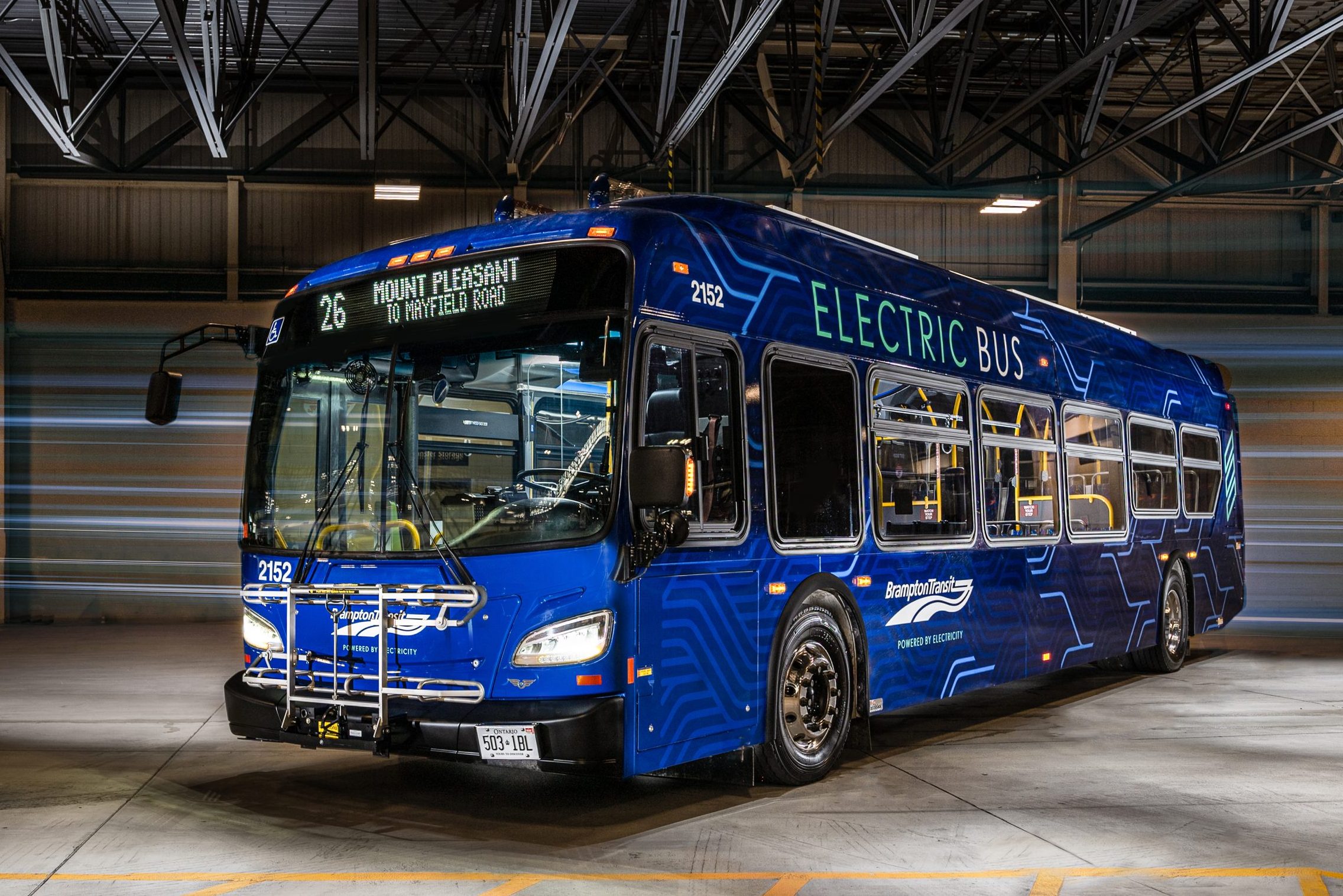Transit needs a $9 Billion overhaul by 2041, but where will the money come from in Brampton?
Published April 24, 2024 at 11:51 am

City council says it’s time for Brampton to back up its tough talk on tackling climate change and find ways to fund a nearly $9 billion project to decarbonize the entire Brampton Transit fleet.
“They’re big, they’re expensive, they’re complicated, but they have to be done.”
That was the message Dr. Josipa Petrunić gave to Brampton City Council on Wednesday regarding the city’s plans to revamp its fleet of Brampton Transit buses by 2041 and slash its greenhouse gas emissions by some 60 per cent.
Petrunić is president and CEO of the Canadian Urban Transit Research and Innovation Consortium, which has put forward three options for how the city can meet the lofty goal – an electric bus-only option, a fleet of all hydrogen buses, or a mixed-fleet option using a combination of both.
The transition to zero-emission buses in Brampton is expected to cut some 115 tonnes of CO2 emissions per bus every year – that’s approximately 53,000 tonnes every year or the equivalent of removing approximately 12,000 cars from Brampton roads.
With Brampton Transit accounting for around 70 per cent of all of the city’s GHG emissions, CUTRIC says the mixed-fleet choice would cut those numbers to just a fraction and meet the city’s Brampton 2040 Vision goal of reducing GHGs to 40% of 2016 levels by 2040.
And while CUTRIC said the hybrid option is the best for the city’s long-term transit plans it would come with a price tag of nearly $9 billion.
With manufacturers phasing out diesel-powered buses over the next decade, CUTRIC says the city will have no choice but to switch to more environmentally friendly buses as the current fleet ages out of service.
“As a result, one of these options has to come to bear,” Petrunić told council.
Mayor Brown, who says the city has “slipped a little bit” on its goal of becoming Canada’s first city with a fully electric bus fleet, said Brampton has been “ambitious in our talk but not in our urgency.”
“We now have all the pieces in place that we can start this, and my plea to council is I don’t want to see any delay,” Brown said on Wednesday.
Petrunić said the estimated costs for the mixed-fleet option comes to $8.94, not including the planning and construction of two new Brampton Transit facilities that would be needed to facilitate the fleet growth. Those additional facilities could cost another “hundreds of millions” of dollars, meaning the total cost of the overhaul could be significantly higher.
With long routes and “aggressive” routes operating in The report recommends the city look at hydrogen and electric buses with diesel-powered heaters
With ridership increasing on Brampton Transit, the city will also need new buses, driver and labour hours to provide steady service. The city currently has around 475 buses in service but Brampton will need to increase its stock to 1,132 under the hybrid model to meet demand.
Petrunić said converting an entire transit fleet to a green model is no small task with one challenge related to the supply of hydrogen to power the buses.
The city is exploring an “energy as a service” model which would see Brampton outsource the design, construction and maintenance to third parties. Petrunić called the industry “an emerging landscape” that could provide cost savings options for Brampton.
City staff have been directed to explore options proposed in the CUTRIC report and come back with a proposal as soon as possible.
And while Brown said he acknowledges the plan is an ambitious one, his concern is that it’s “not ambitious enough.” He says the decarbonization of Brampton Transit is an opportunity for the city to “be a leader” in developing green transit solutions.
“It has to go beyond talk, it has to be words and actions,” Brown said.
Brampton has received $1.1 million in federal funding for the development of a strategy and rollout plan for transitioning the City’s fleet to zero-emission buses, and inked a deal with the Canada Infrastructure Bank in 2022 for $400 million to purchase 450 zero-emission buses over five years.
Conservative Party Leader Pierre Poilievre has said he plans to scrap the Canada Infrastructure Bank if his party comes to power, leading Mayor Brown to express concerns that the city’s “partnership may change.”
Dep. Mayor Harkirat Singh echoed the mayor’s comments, saying there is urgency to get the project moving forward incase changing political climates in Ottawa “handicap our ability to hit our decarbonization goals.”
INsauga's Editorial Standards and Policies








